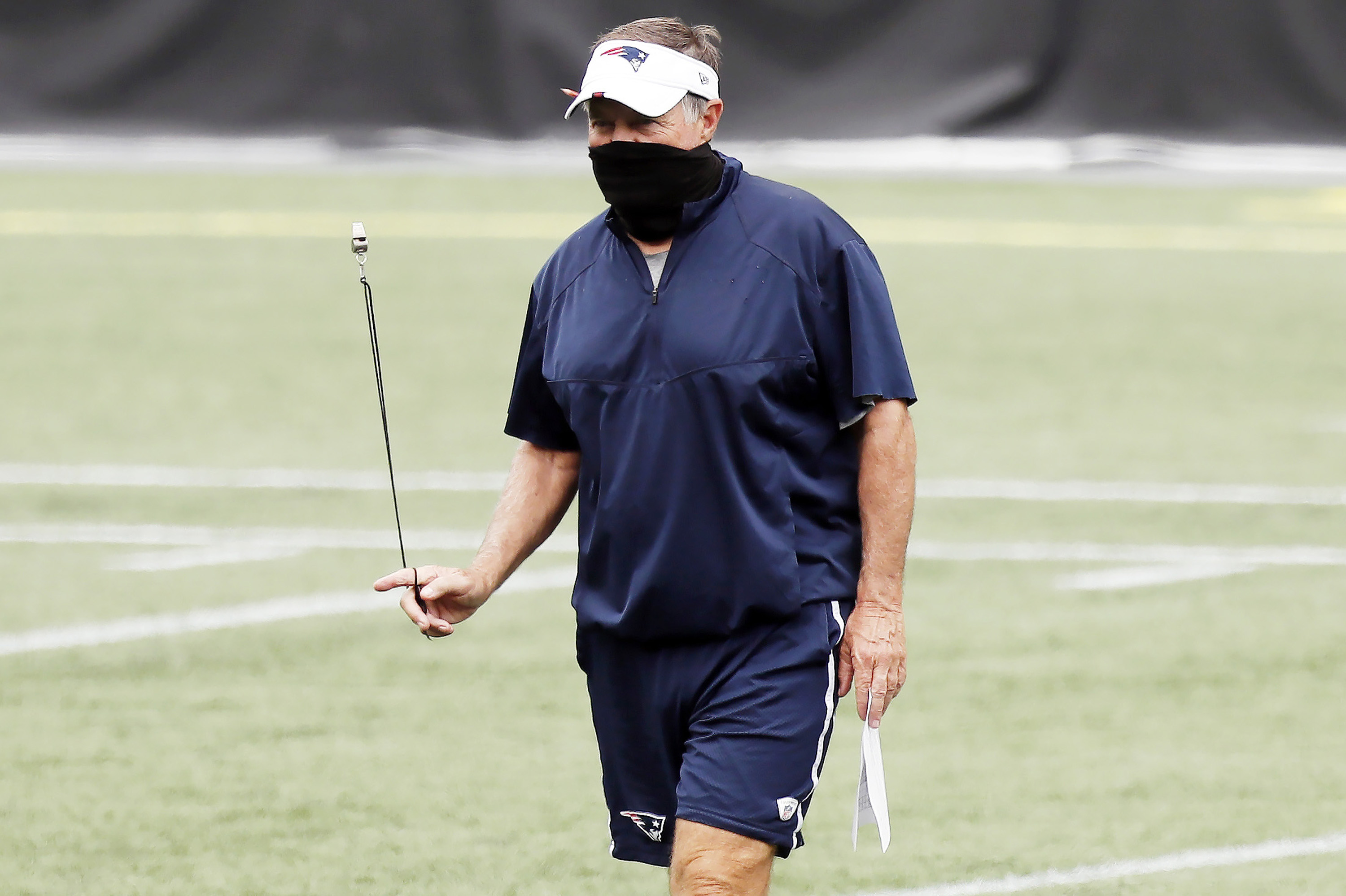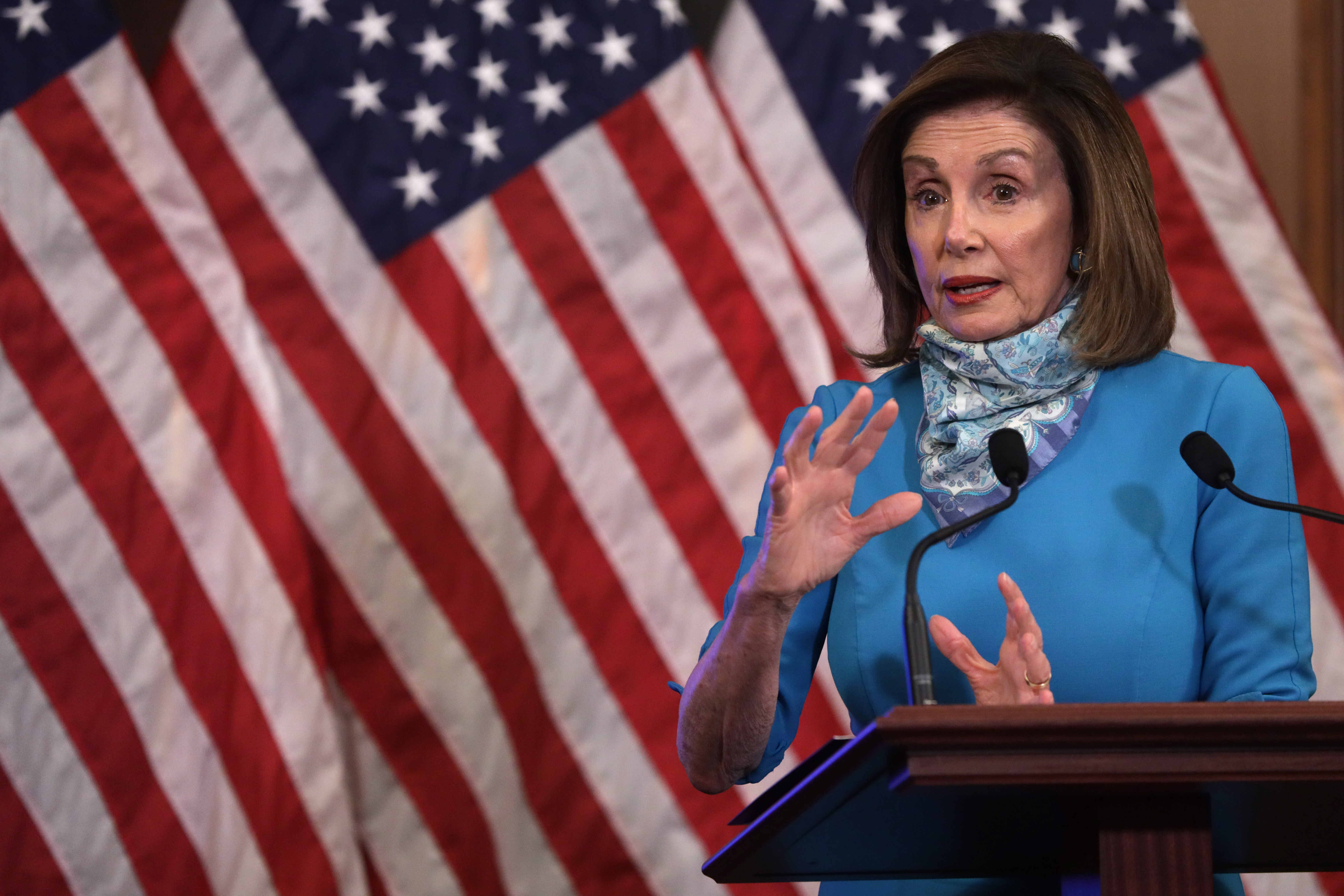Dr. Anthony Fauci sounded upbeat about the race for a coronavirus vaccine, saying on NBC's TODAY show Wednesday that he expected a "safe and effective vaccine" to be developed by the end of the calendar year.
Asked about the possibility of an emergency use authorization getting the vaccine to the public more quickly, the government's top expert on infectious diseases said such "EUAs" are done "when there was enough data that you would really feel comfortable that it was safe and effective for the American public."
In separate comments to Kaiser Health News, Fauci said that vaccine trials could end early if a safety board determined positive results were "overwhelming."
Despite fears by some vaccine experts that President Donald Trump might try to push for early approval to help his re-election efforts, Fauci said he was not concerned about political pressure on regulators.
The Univesity of Oxford launched a large trial for a potential coronavirus vaccine in the United States on Tuesday, making it the third company to enter Phase 3 trials after Moderna and Pfizer.
But as the nation awaits a vaccine to end the pandemic, local health departments say they lack the staff, money and tools to distribute, administer and track millions of vaccines, most of which will require two doses.
Dozens of doctors, nurses and health officials interviewed by Kaiser Health News and The Associated Press expressed concern about the country’s readiness to conduct mass vaccinations, as well as frustration after months of inconsistent information from the federal government.
Questions include who will distribute the vaccines, how doses will be tracked and how workers who give the shots will be kept safe.
The U.S. now has more than 6.1 million virus cases and 185,000 COVID-related deaths, according to a tally by NBC News.
The Ebb and Flow of New Coronavirus Cases and Deaths
The graphs below illustrate the distribution of new coronavirus cases and deaths in the U.S. While New York accounted for the lion’s share of new cases and deaths in March and April, its numbers have declined in May as some states have increased. Hover or tap to see new daily cases and deaths across the country. States with the most are ordered top to bottom.
Source: The COVID Tracking Project
Credit: Amy O’Kruk/NBC
Here are the latest updates on the coronavirus pandemic in the U.S.:
Dr. Fauci Urges Caution for Labor Day Weekend, Calls for Universities Not to Send Infected Students Home
Dr. Anthony Fauci also said on NBC's TODAY show that taking virus precautions seriously now can help avoid a major problem when the flu returns in the fall.
“What I'd really like to see is a full-court press to get us way down as a baseline, so that when you get these cases in the fall, they won't surge up,” he said.
He urged caution over Labor Day Weekend so the nation doesn't see another uptick in cases as it did following the Memorial Day and July 4 holiday weekends.
"Wear a mask. Keep social distancing. Avoid crowds," he said. "You can avoid those kind of surges. You don't want to be someone who's propagating the outbreak. You want to be part of the solution, not part of the problem."
As for students who have fallen ill on college campuses, Fauci advised that schools quarantine them and not send the students home to infect people in other states.
Biden, Trump Take to Campaign Trail
Joe Biden and Donald Trump were holding dueling appearances on Wednesday.
Biden, speaking from Delaware, hammered the president over his response to the coronavirus, while Trump appeared in the battleground state of North Carolina to declare the port city of Wilmington a World War II “Heritage City.”
Biden said Wednesday that if he were president he’d use existing federal disaster law to direct FEMA funding to schools to help them reopen safely, and he urged Trump to “get off Twitter” and “negotiate a deal” with Congress on more pandemic aid.
When Trump landed in Wilmington, he told a few hundred supporters that his Democratic opponent is “stone-cold crazy.”
“We're making strides, you know, the stock market's hitting another high,” Trump said, adding that the U.S. economy is coming back “very strongly” from the coronavirus pandemic.
Art Basel Is Canceled Until 2021
The major South Florida tourist draw Art Basel has canceled this year's fair due to the coronavirus pandemic, NBC Miami reported.
"It is with great regret and disappointment that we announce the cancellation of our December show in Miami Beach, as we know how crucial our show is for our galleries, as well as for the greater Miami arts community and economy," Art Basel's Noah Horowitz said in a statement.
The event was set to take place in December. It will now take place from Dec. 2 to 5 in 2021.
Depression, Anxiety Spike Across US
Mental health therapists’ caseloads are bulging. Waiting lists for appointments are growing. And research suggests that anxiety and depression are rising among Americans amid the coronavirus pandemic.
A study by Boston University researchers published Wednesday is the latest to suggest an uptick. Half of U.S. adults surveyed reported at least some signs of depression. The rate was higher than in a different survey two years ago.
The BU study involved a survey of 1,440 U.S. adults questioned about depression symptoms in early April. Symptoms were most common in young adults, low-income participants and in those who reported several outbreak-related troubles, including financial problems, lost jobs or COVID-19 deaths of relatives. Almost 1,000 participants had experienced at least of three such struggles.
The study results echo research from China early in the outbreak, and studies done during the Ebola and SARS crises and after major hurricanes and 9/11, said lead author Dr. Sandro Galea, a BU public health expert.
Private Payrolls Up, But Miss Expectations
Companies added 428,000 jobs in August, according to payroll firm ADP.
That's well below the 1.17 million that economists had estimated but above the 212,000 jobs created in July, CNBC reported.
Large-sized companies dominated the gains with 298,000 workers, followed by 79,000 for medium-sized firms and 52,000 for businesses with fewer than 50 workers.
Convalescent Plasma Not Recommended to Treat COVID-19, Government Panel Says
There is no solid evidence for or against recommending convalescent plasma to treat patients hospitalized with COVID-19, a government panel said Tuesday. The announcement came less than 10 days after the Food and Drug Administration authorized emergency use of the treatment, NBC News reports.
The COVID-19 Treatment Guidelines Panel, part of the National Institutes of Health, said it had reviewed all of the available research on convalescent plasma, including the FDA's analysis that led to its emergency use authorization.
"There are currently no data from well-controlled, adequately powered randomized clinical trials that demonstrate the efficacy and safety of convalescent plasma for the treatment of COVID-19," the group wrote online.
The data cited by the FDA were based on a preliminary study of convalescent plasma from the Mayo Clinic, which compared a small subset of patients who received either a high or a low concentration of COVID-19 antibodies in the plasma. The study suggested some benefit for patients who were sick enough to be in the hospital but had not been placed on ventilators. However, there was no significant difference in death rates.
Read the full story here.
COVID-19 Antibodies May Last for at Least 4 Months, Study Suggests
People may have antibodies for at least four months after they get COVID-19, a study published Tuesday in the New England Journal of Medicine suggests.
The study pulled from a massive dataset from Iceland, looking for the presence of antibodies in more than 30,000 blood samples, NBC News reports. The samples came from three groups of people: those with confirmed COVID-19 cases, those who had been exposed to the virus but weren't necessarily infected, and those who had no known exposure.
The researchers focused on a small subset of 487 people who had had more than one antibody test, which allowed researchers to see whether antibody levels remained stable or faded over time. In this group, the researchers found, antibody levels increased in the first two months after diagnosis and remained stable for the next two months.
"There is no evidence of any slight decrease," said a co-author of the study, Dr. Kári Stefánsson, founder of the Icelandic biotech company deCODE genetics.
Read the full story here.



